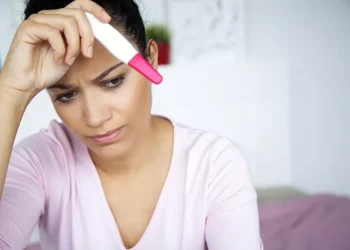Understanding the periods when you are least likely to conceive is crucial for effective family planning and fertility management. Pregnancy is intricately linked to the timing of ovulation, and recognizing when you are less fertile can help in avoiding unintended pregnancies or planning for conception. This article provides a comprehensive overview of the factors influencing your fertility and outlines the times when conception is least likely.
Introduction to Fertility and Ovulation
To grasp when you are least likely to get pregnant, it is important first to understand the basics of fertility and ovulation. Ovulation is the process in which an ovary releases an egg, making it available for fertilization. This usually occurs around the middle of your menstrual cycle. However, various factors can influence fertility, making it essential to pinpoint the times when pregnancy is least likely.
Understanding Your Menstrual Cycle
1. The Menstrual Cycle Overview
A typical menstrual cycle lasts about 28 days, although cycles can vary between 21 and 35 days. The cycle is divided into several phases:
Menstrual Phase: This is when bleeding occurs, lasting from 3 to 7 days.
Follicular Phase: Following menstruation, the follicles in the ovaries mature in preparation for ovulation. This phase can vary in length.
Ovulation: The release of an egg from the ovary, typically occurring around the midpoint of the cycle.
Luteal Phase: Post-ovulation, the body prepares for a possible pregnancy. If fertilization does not occur, the cycle ends with menstruation.
2. Fertile Window
The fertile window is the period during your cycle when you are most likely to conceive. This generally spans from about five days before ovulation to the day of ovulation itself. The egg remains viable for fertilization for about 12 to 24 hours after its release. Sperm can live up to five days in the female reproductive tract, thus the fertile window accounts for the time sperm can be present before ovulation.
Times When You Are Least Likely to Get Pregnant
1. Menstrual Phase
During menstruation, the chances of getting pregnant are very low. This phase is characterized by the shedding of the uterine lining and the absence of a viable egg for fertilization. Since the body is in the process of clearing out the old lining and preparing for the next cycle, fertility is minimal. However, sperm from intercourse near the end of menstruation could still fertilize an egg if ovulation occurs soon after.
2. Early Follicular Phase
The early follicular phase, which follows menstruation, is another period when pregnancy is less likely. During this phase, the body is focused on maturing the follicles, and the hormone levels necessary for ovulation are still building up. Generally, the first few days after your period ends are not considered a high fertility time. The follicles must reach a certain level of maturity before ovulation can occur.
3. After Ovulation
Once ovulation has passed, the chances of pregnancy drop significantly. The egg, once released, is only viable for fertilization for a short window, typically 12 to 24 hours. After this period, if the egg is not fertilized, it disintegrates and is absorbed by the body. The luteal phase that follows ovulation is not considered fertile. The primary focus of this phase is to support a potential pregnancy. If pregnancy does not occur, menstruation begins, marking the start of a new cycle.
4. Irregular Menstrual Cycles
Women with irregular menstrual cycles might find it more challenging to pinpoint the exact timing of ovulation. If ovulation does not occur regularly, the fertile window may be unpredictable. In such cases, determining the least fertile times becomes more complex, but generally, the phases before ovulation and after ovulation are less likely to result in pregnancy.
Factors Affecting Fertility
1. Hormonal Imbalances
Hormonal imbalances can affect ovulation and make it more difficult to predict the least fertile times. Conditions such as polycystic ovary syndrome (PCOS) or thyroid disorders can disrupt the regularity of the menstrual cycle and ovulation.
2. Stress and Lifestyle Factors
High levels of stress, excessive weight gain or loss, and lifestyle factors such as smoking and alcohol consumption can impact hormonal balance and ovulation. These factors can alter the timing of your fertile window, making it challenging to determine the least fertile times accurately.
3. Age
Age plays a significant role in fertility. As women age, the quantity and quality of eggs decline. This decrease in ovarian reserve can affect the timing of ovulation and alter the patterns of fertility.
see also: What Causes a Woman Not to Give Birth
Methods to Track Ovulation and Fertility
1. Ovulation Predictor Kits
Ovulation predictor kits (OPKs) can help identify the surge in luteinizing hormone (LH) that occurs before ovulation. These kits are useful for pinpointing the most fertile days and understanding when you are least likely to conceive.
2. Basal Body Temperature Charting
Charting your basal body temperature (BBT) involves taking your temperature each morning before getting out of bed. A slight rise in BBT typically indicates that ovulation has occurred. Tracking your temperature over several cycles can help identify patterns and predict when ovulation is most likely to occur.
3. Cervical Mucus Monitoring
Observing changes in cervical mucus can provide insights into fertility. Around ovulation, cervical mucus becomes more abundant, clear, and stretchy. During the less fertile phases, mucus is typically thicker and less abundant.
Consulting with a Healthcare Provider
If you have concerns about your fertility or difficulty in determining your fertile and non-fertile periods, consulting with a healthcare provider or fertility specialist is advisable. They can provide comprehensive evaluations, address any underlying issues, and offer personalized guidance based on your reproductive health.
Conclusion
Understanding when you are least likely to get pregnant involves recognizing the phases of your menstrual cycle and factors affecting fertility. By identifying the times when fertility is lower, you can make informed decisions about family planning. If you experience irregular cycles or difficulty predicting ovulation, consider consulting a healthcare provider for tailored advice and support. Awareness and tracking of your fertility can help you manage your reproductive health effectively and achieve your family planning goals.
Related topics:



























